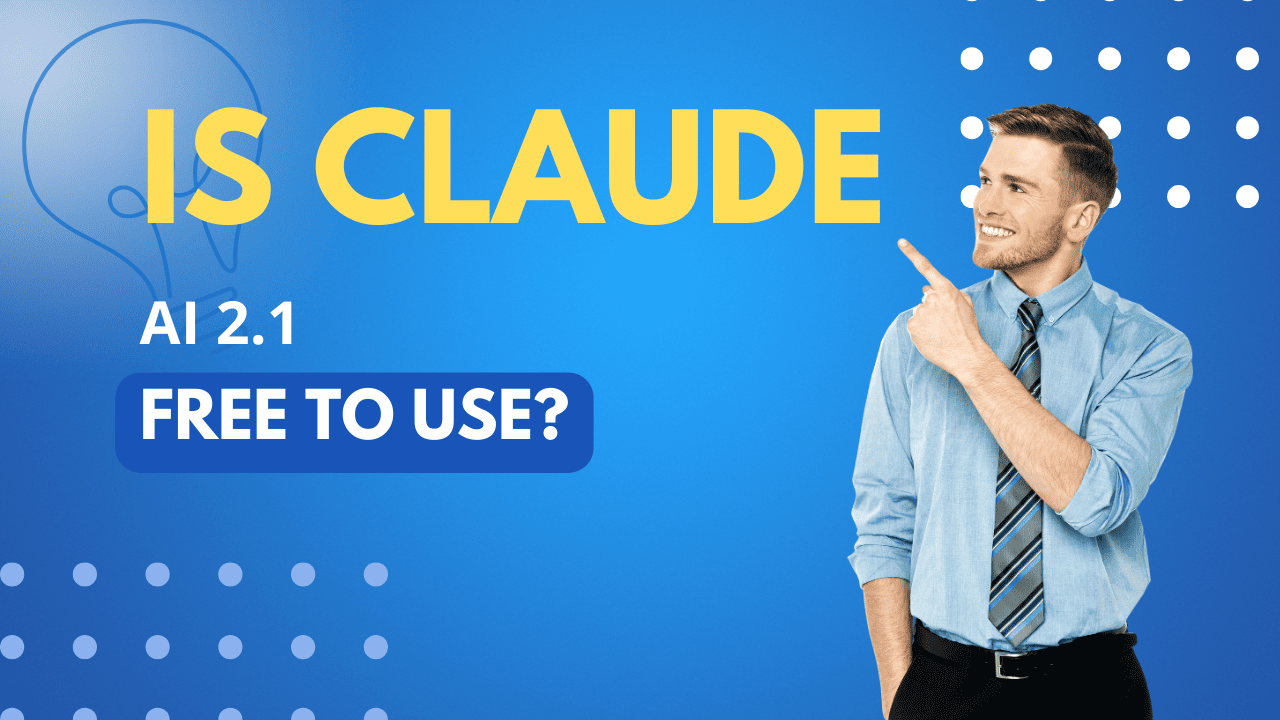Claude AI 2.1 refers to version 2.1 of Claude, an artificial intelligence assistant created by Anthropic, a San Francisco-based AI safety company. There has been some confusion around whether Claude AI 2.1 is available for free use or requires payment.
Free Limited Trial
Anthropic is currently offering a limited free trial of Claude AI 2.1. Users can sign up on the Anthropic website to get access to Claude for free. However, there are some limitations to the free trial:
- Trial limited to 30 days – After 30 days, free access expires unless a subscription is purchased
- Limited number of monthly messages – Free trial has a cap on the number of messages you can send Claude per month
- Minimal account support – Free trial accounts have limited customer service support
So while you can test out Claude’s capabilities for free for a month, the free trial does not provide unlimited ongoing access.
Paid Subscriptions
For full access with no limitations, Anthropic offers paid subscriptions to Claude AI 2.1. There are a few subscription tiers available:
- Personal plan – $20/month billed annually – Ideal for personal and hobbyist use
- Professional plan – $42/month billed annually – Designed for freelancers, academics, etc.
- Business plan – Custom enterprise pricing – For companies and organizations
The paid subscriptions do not have any caps on usage. You get full access to all of Claude’s features as well as priority customer support.
Using Claude Responsibly
While parts of Claude are available for free, it is important to use the AI assistant responsibly. Here are some key guidelines Anthropic provides for all users:
- Don’t attempt to override Claude’s safety constraints
- Don’t request content that is dangerous, hateful, or unethical
- Use Claude for lawful purposes only
- Provide feedback to improve Claude’s abilities
Following these rules facilitates fair access for all users while also respecting Anthropic’s terms of service.
Educational and Research Access
Anthropic is dedicated to AI safety research. As such, they provide special access to Claude for certain academic research teams and computer science educational programs.
Educators and academic researchers can apply for free access by contacting Anthropic’s educational program. If approved, they provide access to Claude APIs and datasets to further AI accountability efforts.
This educational access comes with oversight requirements for ethical reporting of Claude’s capabilities. But it enables important research into safe AI alignment.
Core Capabilities Free for All Users
While full Claude access requires a paid subscription, Anthropic does allow both free and paid users to access Claude’s core conversational capabilities without limitation.
These core capabilities include:
- General conversation and dialogue
- Question answering
- Task and request understanding
- Discussion of skills, limitations, and capabilities
So free trial users can extensively test Claude’s language and reasoning abilities. Only generation of custom content like writing and coding is limited without a paid subscription.
The Future of Claude Pricing
As an early stage startup, Anthropic currently monetizes full access to Claude to finance their AI safety research. However, their stated goals show a commitment to eventually making Claude freely accessible to all:
“Our vision is an AI assistant as helpful, harmless, and honest as possible. We believe the benefits such technology offers should be available to all.”
As they refine Claude and expand capabilities, Anthropic hopes to subsidize free tiers of access through corporate and enterprise subscriptions vs. individual subscriptions.
But for now, individual subscribers are crucial for funding Claude’s development. Long term, the pricing model may shift towards free public access enabled by institutional backing.
Conclusion
In summary, Claude AI 2.1 currently offers a free but limited trial, followed by paid subscriptions for full individual access. But Anthropic permits free access to Claude’s core conversational capabilities for all users, supporting responsible testing. And their educational initiatives and long-term goals aim to make Claude’s technology widely available to benefit the public.
While pricing may constrain access short-term, Anthropic is dedicating revenue to research pursuits that align with accessible AI for social good. Financial support today helps enable free availability of Claude’s safer AI model down the road.
FAQs
Is there a free version of Claude AI I can use?
Yes, Anthropic offers a limited free trial that gives you access to Claude AI for 30 days. However, the free trial has caps on usage and limits on features.
What are the limits of the Claude AI free trial?
The Claude AI free trial limits you to a set number of monthly messages and cuts off access after 30 days. You also have minimal customer service support on free trials. All capabilities like writing and coding generation are capped.
Does Anthropic offer paid subscriptions to remove limits?
Yes, Anthropic has Personal, Professional, and custom Business paid subscription plans that provide unlimited access to all Claude AI features without any caps on monthly usage or generated content.
What core capabilities are available for free?
While advanced features require paid plans, all users have unlimited access to Claude’s general conversation, question answering, task understanding, and discussion of its own skills/limitations.
Can students or academics get free access to Claude AI?
Anthropic provides special free access to teams at academic institutions and computer science programs if they apply and are approved for educational research purposes under ethical oversight conditions.
Is Anthropic working towards making Claude AI freely available for all?
Yes, Anthropic has stated goals to make AI assistance available to all. While current pricing models fund research, they hope to subsidize free public tiers in the long term through enterprise/institutional plans.
Does responsible use of Claude AI require following any guidelines?
All Claude AI users must agree not to override safety constraints, request dangerous/unethical content, use it unlawfully, or neglect providing user feedback. Following these guidelines facilitates fair access.
